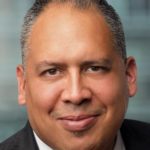I am very pleased to join the Duck on a more formal basis. I have been posting for a bit through our dear departed leader – Dan Nexon – for some time with a focus on my cyber security work. I am particularly proud of my post making fun of James Bond’s ineptitude as a cyber warrior. I always enjoy posting and receiving feedback on my work. Many things in my life have changed recently, possibly many of the good developments have come from my increased willingness to blog , write op-eds, and do media work.

The question remains, why commit to a greater role on the Duck? I have more writing/research commitments than I can count on two hands and now run a growing MSc programme at the University of Glasgow (join me, the whisky is great).
When I mentioned move to the Duck to my more learned senior mentors at APSA, they were a bit aghast. The general feeling in the field among the most august members of our community is that blogging is a waste of time. I even encounter this among younger members of our field who somehow seem to see blogging as a zero sum game. I reject zero sum games in my research and in my approach to blogging. The great majority of my posts will be based on my substantive research interests.
I titled this post blogging against the odds because I was never meant to be an academic, let alone a blogger (here is an International Studies Perspectives article that serves a bit as a personal academic biography – or is it ethnography – the British have me confused). I am a Latino that grew up in LA. I would not say I was poor or disadvantaged, but I certainly was not advantaged. I did not get on a plane until I was well into college. I paid for most of college myself through loans, not being given advice on how to pursue scholarships and fellowships. I went to Whittier College mainly because it is all I really knew, being in the next town over. I do not really regret that decision, but I also know that I could have had so many more opportunities at better ranked schools. Thing is, no one ever told me what is possible or probable. We often speak of the leaky pipeline for minorities in academia, but what of the people who never even make it into the tap? It is a miracle I made it to graduate school and I am amazed I have survived to this point.
I think diverse backgrounds in our field are critical. Research supports this proposition, with Scott Page being the one leading the way in demonstrating that a diversity of perspectives leads to better outcomes. There is something different and important that people like me bring to the field. Being who I am, I have grown up questioning conventional wisdom and normal authority structures. It never served me (or my people) well in the past and I find that being cynical about most things has guided me into some pretty interesting directions in terms of research (please endorse me as a professional cynic on Linkedin). Most of the questions I ask are a result of this orientation.
For example, my main area of scholarship is on cyber security. This developed when I invited to a cyber conference at the Naval War College. I sat in the back of the room and was just dumbfounded that all the policy makers, academics, and military brass were accepting conventional wisdom as it was handed to them. They promoted the cyber threat without question. Jon Lindsay calls this the Revolution Hypothesis suggesting that the idea of a revolution in military affairs through cyber tactics is misguided. My own empirical work on this question supports this contention. Of course, cynicism can be important to motivate scholarship, but to me the critical issue is that the United States and other states are militarizing cyberspace on mistaken assumptions.
My work on rivalry in some ways is motivated by the rivalries I witnessed every day. From whites against Latinos, to Latinos versus Blacks, it is clear to me that we do not live in a post-racial society and rivalries are everywhere. These outlooks will also influence my next two major projects looking at the sources of internal military buildups and the development of external Latino foreign policy attitudes. In both these projects, my background plays a crucial part in guiding my research.
In the future, I will continue to blog about my research, but also seek to engage non-traditional questions that others may have missed. The key question raised recently is where all the women bloggers are. While I agree with this sentiment, even more critical in some ways is where all the minority and diverse voices are? If you have ideas, I encourage you to submit them to me and I will help facilitate posts on the Duck. Ideas and inspiration can come from anywhere, at this crucial moment we need to hear from those who come from different backgrounds and perspectives. The field deserves and needs this.
Valeriano serves as the Donald Bren Chair of Military Innovation at the Marine Corps University.His work also includes serving as a Senior Fellow at the Cato Institute and as Senior Advisor to the Cyberspace Solarium Commission.


Brandon, I’ve been mulling this post (and your ISP piece) and the question of diversity because your educational and intellectual experience felt like mine. It’s a relief to hear from a kindred spirit. My family wasn’t exactly poor, but I never even thought about air travel until I paid for a trip from a high school job. Spirituality, honesty, family, sacrifice and independence, at the expense of professionalism or long-term strategizing, were my guiding values. As a “first generation” student, I was clueless about college and mystified about paying for it and, consequently, am certain I missed out on a more “successful” trajectory. I struggled in grad school because I didn’t quite fit in and it has taken me years to carve out a sensible intellectual niche.
But there’s also a wrinkle here: I’m not a “minority.” My experience of struggle and a sense of outsider status feels like what minorities describe — aside from the (admittedly nontrivial) fact that the old pillars of IR more or less look like me.
All this actually circles back to your last question. My view is that we lose minority voices only partly because the field values certain approaches or questions or because there is implicit prejudice. Minorities, ranging from poor, rural whites to inner city blacks to first-generation Latinos, are often socialized into values and modes of thinking that just don’t fit the values of academia and, more specifically, the historically elite world of international affairs. They have to relearn their worldviews. They might even have to let elements of their old lives die. That’s painful, and I think lots of people drop out when cognitive dissonance and low income coincide with the brute struggle of academia. I might have looked the part of the “traditional” IR scholar, but I struggled mightily to identify with the values and prerogatives of many in the field. I’m a more independent thinker now, and as you point out, that is valuable to the larger community. Unfortunately, I also feel alienated and hold little personal interest in the health of IR. Rising in the hierarchy or making my unique voice heard are not the siren song that entice others. Of course, academia attracts a disproportionate share skeptics and misanthropes, so maybe that’s what is really happening in my case. But perhaps not, and if not, I hope this answer offers some insight or guidance for your ongoing discussions about diversity.